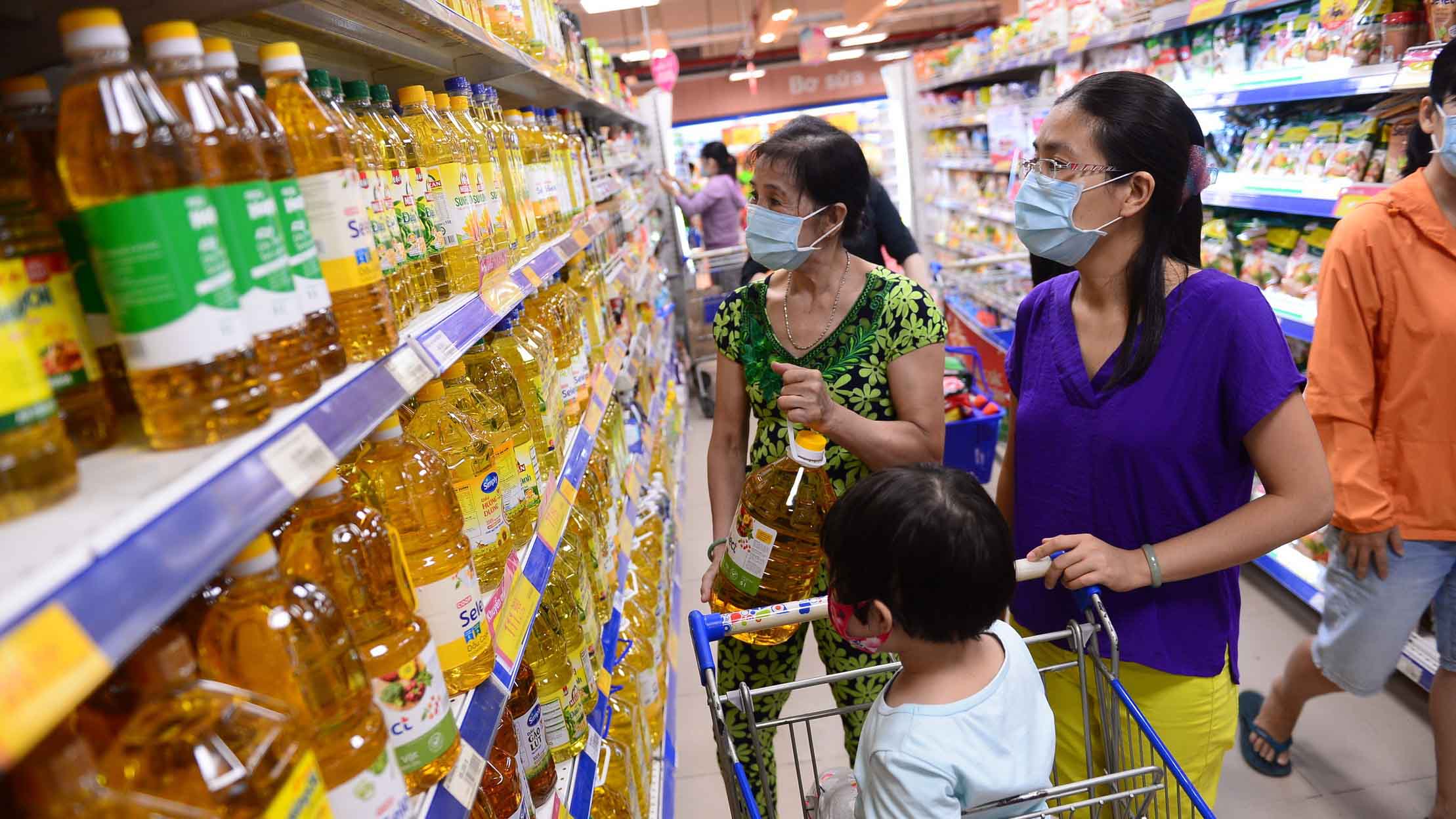Escalating oil and gas prices have forced many Vietnamese enterprises to revise up their goods and service rates, with many experts warning of a risk of high inflation in Vietnam in the coming time.
Vietnam’s gasoline prices skyrocketed to an all-time high on Friday as global rates have kept rallying over the past weeks.
This was the sixth consecutive fuel price hike since the beginning of this year.
In that context, many local businesses are scratching their heads over costlier materials.
Essential goods prices increase
Acecook Vietnam has increased the prices of many of its products by 10 percent for the first time in many years as the Vietnamese instant noodle producer can no longer cover rising input costs.
Cooking oil products have risen sharply in price, with some brands having revised up retail rates by 135 percent compared to those before the COVID-19 pandemic.
Prices of cosmetic products have also leapt by two to 10 percent since the recent Lunar New Year holiday in February while dairy products reported a five percent rise.
The director of a business providing materials for beverage production said that they would adjust the selling price from mid-April with an increase of 25 percent compared to the current level.
“Manufacturers say they are under great pressure so they have no choice but to charge higher rate,” said an essential goods distribution agent in Tan Binh District.
Further hikes to come
Tran Viet Anh, vice-president of the Ho Chi Minh City Rubber and Plastic Manufacturer Association, said that the prices of plastic raw materials have jumped from US$800-900 per metric ton during the fourth wave of COVID-19 in Vietnam, which began in late April last year, to around $1,300 per metric ton and are believed to continue rising.
Anh anticipated that costlier raw materials and low supply will drive prices of final products up around the end of March or the beginning of April.
The vice-president added that many enterprises in the industry have seen their sales declining from hundreds of thousands of metric tons to only 10,000-30,000 metric tons for each production batch.
Currently, many companies have to renegotiate with customers over signed supply contracts because the costs have soared wildly, according to Anh.
He mentioned a contract supplying plastic products to a supermarket as an example.
In 2021, the customer placed an order to purchase its products at VND32,700 ($1.43) per kilogram, but the production cost has now gone up to VND34,000 ($1.49) a kilogram.
If both sides fail to reach a common voice in their renegotiation, the producer will definitely suffer a loss.
Inflation risks
Nguyen Duc Thanh, director of the Vietnam Center for Economic and Strategic Studies, assessed that the fuel price volatility will certainly affect many more commodity groups.
Vietnam’s inflation advanced by 1.4 percent year on year in February, mainly due to a 15-percent increase in transportation costs over the same period last year.
In the current context, the government may have to struggle to keep inflation in check, using both fiscal and monetary policies, after its huge spending on COVID-19 prevention.
Thanh noted that the current inflation rate is quite high and warned of possible macroeconomic instability once inflation climbs above one percent a month.
An expert from HSBC, a foreign lender, forecast a price increase in all kinds of products on the market as producers would finally pass the buck to consumers.
“Vietnamese policymakers need to pay special attention to inflation risks because rising commodity prices will affect all aspects of the economy,” said the HSBC expert.
Like us on Facebook or follow us on Twitter to get the latest news about Vietnam!


















































